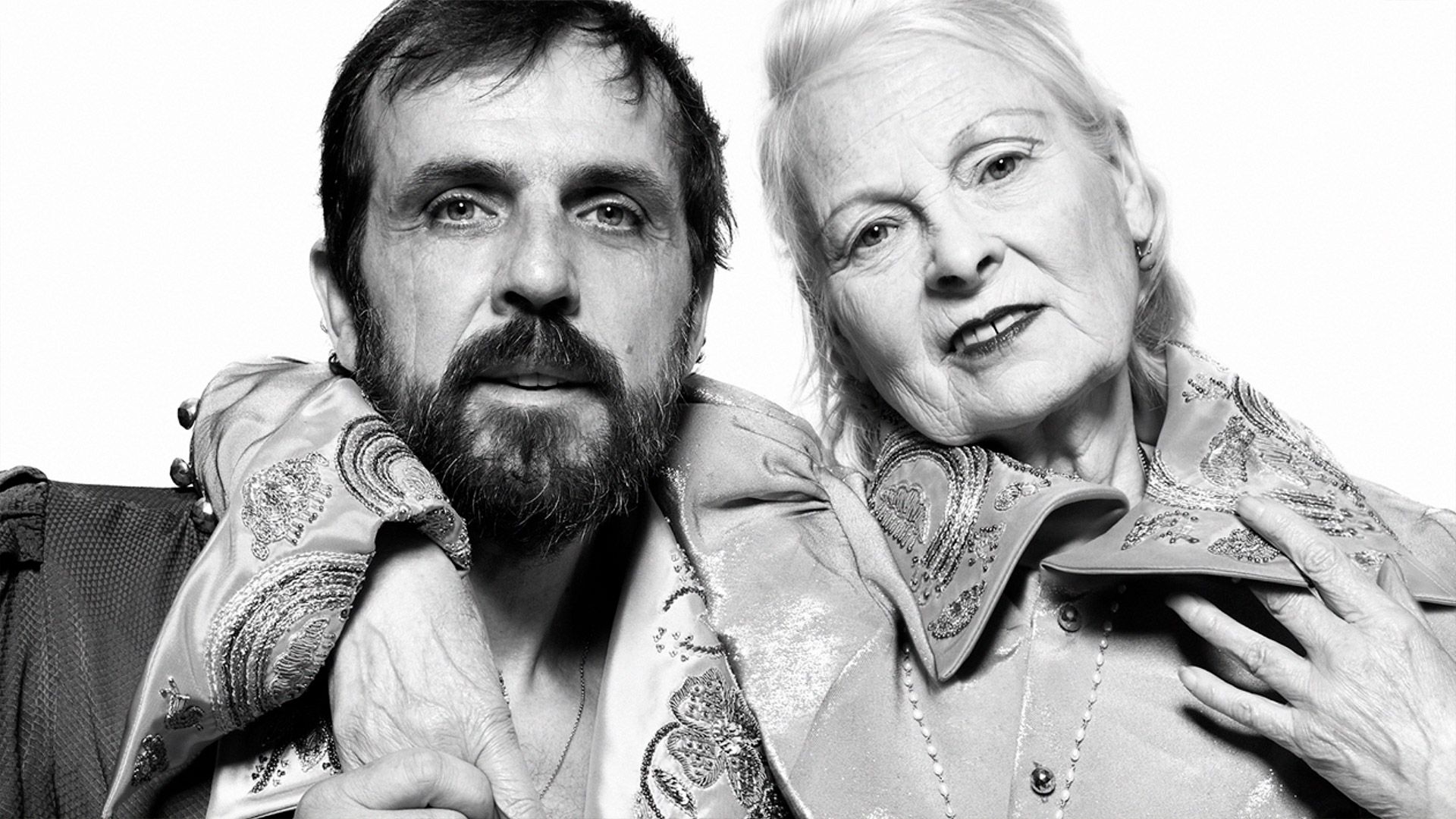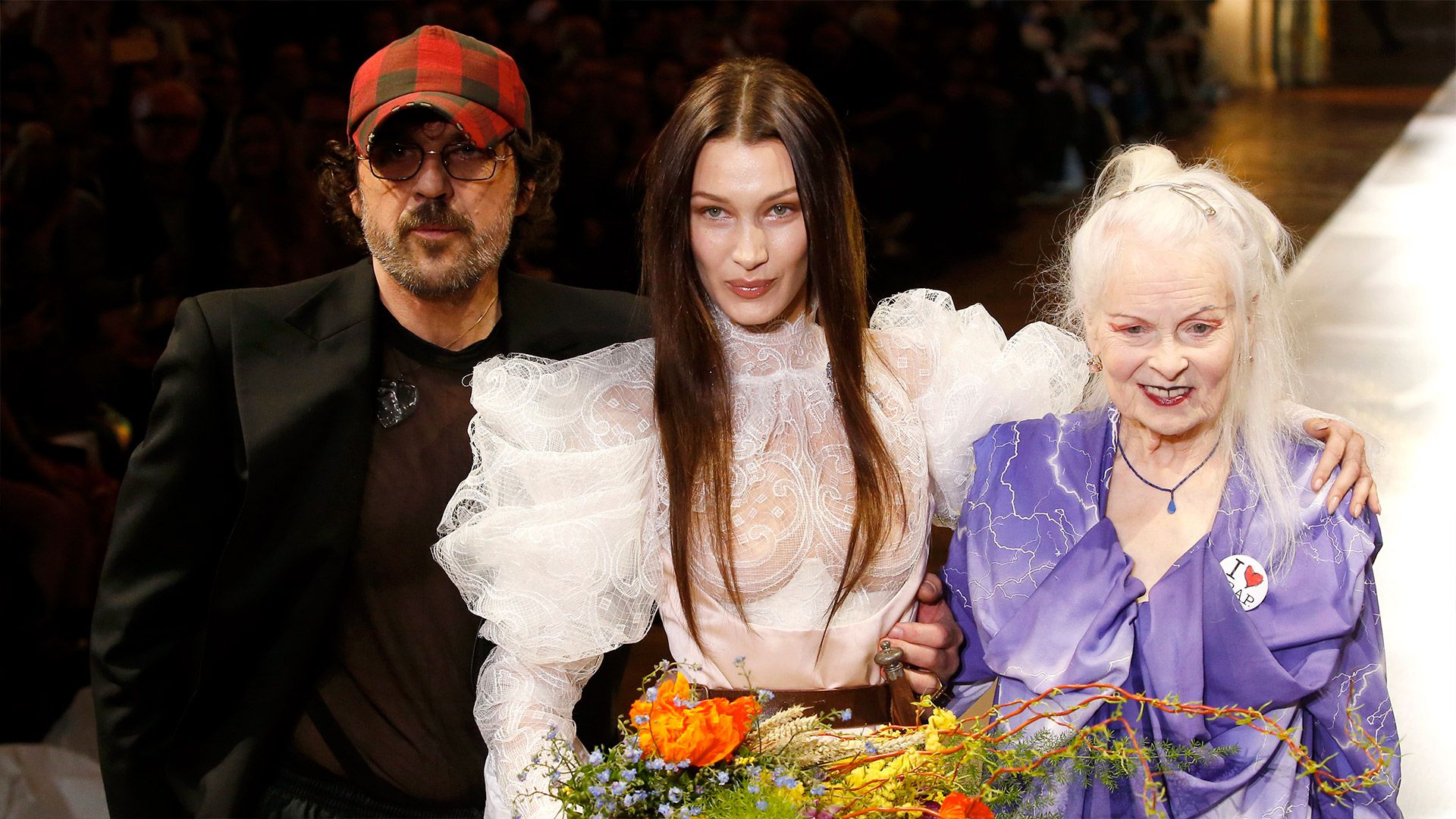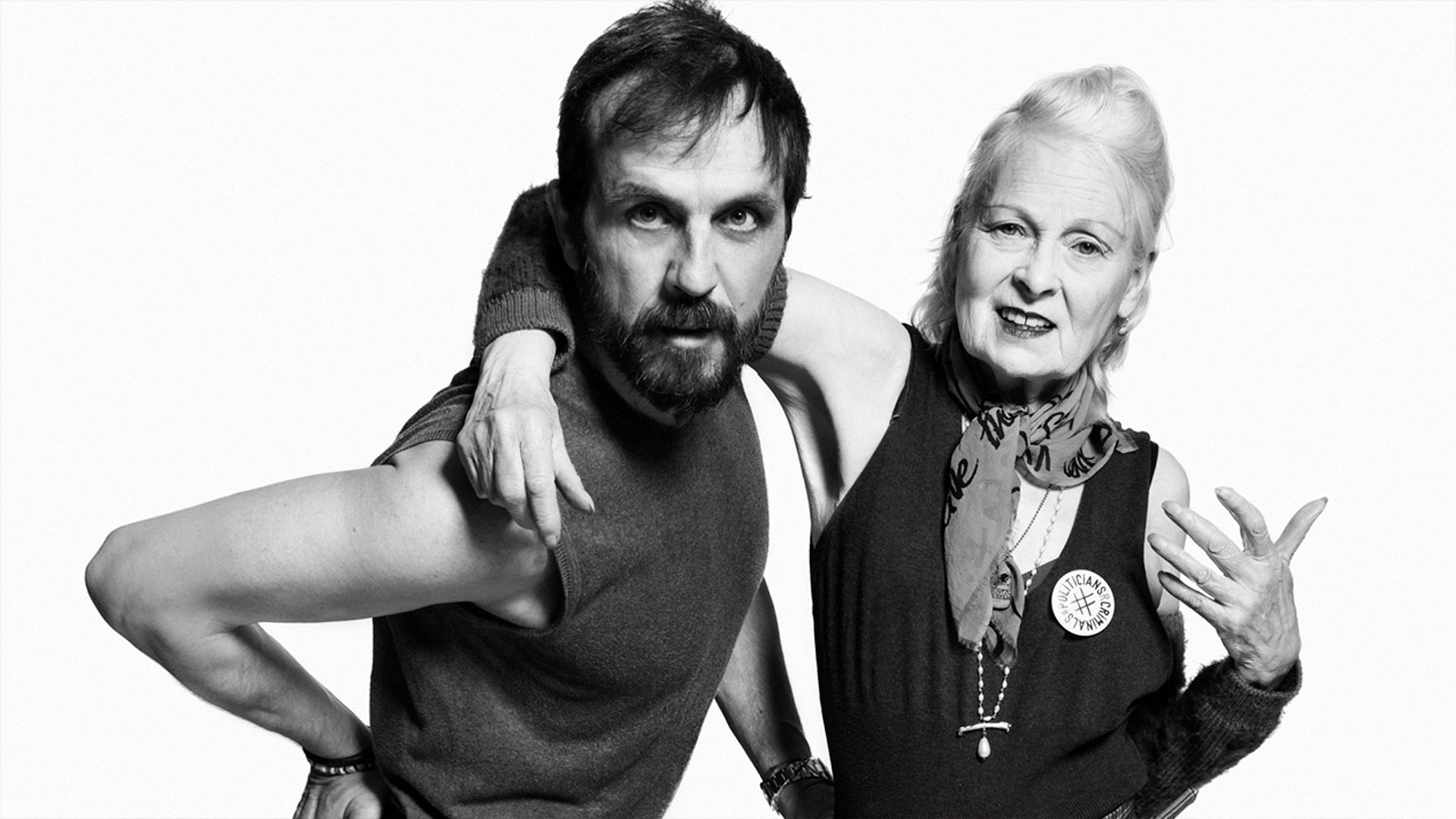-
Vivienne Westwood and Andreas Kronthaler: "Express Your Singularity!"

Meinke Klein @Unit.
Printemps.com: Can you describe how the two of you met? How did you form this collaboration?
Vivienne Westwood: I was teaching fashion in Vienna and I had given my students an assignment. I asked them to make an animal out of paper, cardboard, whatever they had on hand. When I looked at what Andreas was working on, I saw that his fingers were stained with black and white. And he'd gotten it all over his face. He had created this black and white cow, with long eyelashes, kind of like a child would have made. I asked him, "why did you choose to make a cow?" He looked at me with those silvery eyes, and he said, "because they are the most beautiful creatures in the world." (Laughs). Whatever that meant, I found it exceptional.
How does your creative duo work?
Westwood: I love working with Andreas. We go together so well, and I have such respect for what he's capable of making. It's perhaps what I love most about him. And he supports me, profoundly, at every level. We also have different strengths, which makes us complementary.
Andreas Kronthaler: I'm with Vivienne, entirely, on all of that.
How has your collaboration evolved recently?
Kronthaler: Today, Vivienne is my muse (the designer has appeared on the screen, on Instagram, and in the brand's lookbooks) — this has probably been the case for a long time, but today, I'm even more determined to work this way, because I love it so much.
Indeed, Vivienne, you're more and more present in the brand's visual identity.
Westwood: I use my notoriety as a designer as a medium to communicate my ideas to a wider public.

The finale of the Vivienne Westwood Fall/Winter 2020 fashion show with Bella Hadid - credit courtesy of Vivienne Westwood.
The Vivienne Westwood brand has been tearing the walls down on gender norms for a long time. Today, the "gender-free" trend is flooding the fashion world. What's your take on this?
Westwood: I'm very pragmatic. I've always wanted to be able to kind of boil down our collections, and, to that end, unisex is very practical. It's about really playing with the clothes. Andreas agrees, by the way, that fashion is really a question of styling. I love the looks that we can share.
Kronthaler: From my perspective, one is never entirely woman or entirely man — the contours are so flexible, and it's more fun to play around with that. It adds another dimension to whatever you're doing. Express that singularity! It pushes the horizon lines so much further if you think like that.
The Vivienne Westwood brand has always been engaged in social causes. In a larger sense, we say that fashion today is far more political and activist than it's ever been before. What do you think of this evolution?
Westwood: Military inspirations have always had a place in fashion — camouflage, tough vibes, etc. Punks always tried to construct a look that had an urban-guerilla aspect to it. My political activism in fashion translates through my slogans, which I've always used in my collections and in my fashion shows to promote my message. But I don't think that people today are more politically expressive, at least through their clothing, than they were before.
How do you envision the future of fashion more largely, especially with the current pandemic?
Kronthaler: Haute couture is very important. With the Covid-19 pandemic, we can't lose sight of how we allow ourselves to express who we are. What differentiates us from other animals is the fact that we are artists: expressing our humanity through our apparel is an incredibly generous act. I also think that the current health context gives us the opportunity to rethink what we do and the way in which we consume. We'll never have a better moment to reflect upon our habits and our ways of life — if you don't do it now, when will you? It's about reducing, reusing, and recycling.
Westwood: You already know my obsession: "buy less, choose better, make it last," which translates through reduced collections, featuring fewer references, and a business model that really invests itself in production in order to improve it. Fewer seasons, a more targeted approach: that's the business of the future. I've taken advantage of this time to recenter myself and I've seized the chance to come on Instagram every Friday in a different outfit in order to deliver an activist message to my followers (the creator's weekly addresses can be accessed on her instagram account, @viviennewestwood.

Meinke Klein @Unit.
Andreas, you designed these collections all while preserving and renewing the Vivienne Westwood heritage. How do you manage this balancing act?
Kronthaler: It's simple: everything I design, I need to love the result.
And where do you get your irreverent sense of humor?
Kronthaler: Humor is an enormously important quality that, I think, has been forgotten or is under-used. I love things that make me smile or distract me. Humor is so essential in life, why wouldn't we use it in fashion too?
Westwood: Every piece I create needs to tell a story. I imagine who's supposed to be wearing it. When we work with supermodels (in January 2020, Naomi Campbell became the first ambassador of a Vivienne Westwood campaign), I imagine unique ensembles for their personality. History is often caricatural — it can be ironic or, indeed, even absurd.
What stimulates you today in your creative work?
Kronthaler: When a collection is finished, and the finished pieces are sitting in front of me, I'm capable of dressing a person and really having fun with the clothes. I find this to be the most stimulating or gratifying part of the creative process. Otherwise, the real cherry on top of the cake is when I see someone wearing one of our styles in the street.
Westwood: I love reading, much like Andreas — we're both great lovers of art. What I mean by that is that if you're cultured, that culture will serve as a reference, and it will stimulate you. If you don't, even genius will bring you nothing — it would be like having an empty refrigerator. You need to stock it if you want to have something in the house to eat.